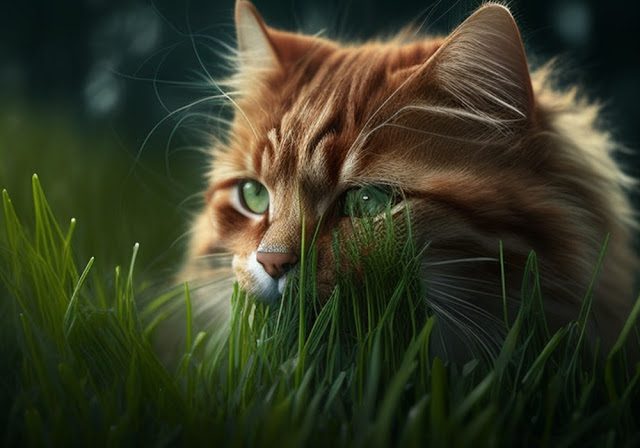It’s not uncommon for veterinarians to recommend cat grass as a supplement for cats, as it can provide a source of roughage and may help satisfy a cat’s natural desire to chew and graze. However, it’s important to note that cat grass is not a replacement for a cat’s regular diet and should only be offered as a supplement. Cats should receive most of their nutrients from a balanced diet of high-quality commercial cat food, rather than from plants.
If you’re considering offering cat grass to your cat, it’s always a good idea to consult with your veterinarian or a feline nutritionist first. They can provide guidance on the appropriate type and amount of cat grass to offer, as well as any potential risks or contraindications. They can also help you determine whether cat grass is an appropriate supplement for your particular cat, based on their age, health, and nutritional needs.
Overall, while veterinarians may recommend cat grass as a supplement for some cats, it’s important to approach it with caution and to consult with a professional before offering it to your cat. By following these guidelines, you can help ensure that your cat stays healthy and happy.
Here are a few more things to consider when it comes to cat grass and whether or not it is recommended by veterinarians:
Individual needs: The specific needs of each cat can vary, so it’s important to consult with a veterinarian or a feline nutritionist to determine whether cat grass is an appropriate supplement for your particular cat. They can take into account factors such as the cat’s age, health, and nutritional needs, and can provide guidance on the appropriate type and amount of cat grass to offer.
Safety: It’s important to ensure that the cat grass you offer is safe and free of pesticides or other harmful chemicals. It’s also a good idea to avoid giving your cat grass that has been treated with fertilizers or other additives, as these can be toxic to cats.
Growing your own: If you’re considering growing your own cat grass, it’s a good idea to consult with a veterinarian or a feline nutritionist to ensure that the plants you choose are safe and appropriate for your cat. They can also provide guidance on the appropriate location and conditions for growing cat grass, as well as any necessary precautions.
Overall, while veterinarians may recommend cat grass as a supplement for some cats, it’s important to approach it with caution and to consult with a professional before offering it to your cat. By following these guidelines, you can help ensure that your cat stays healthy and happy.



